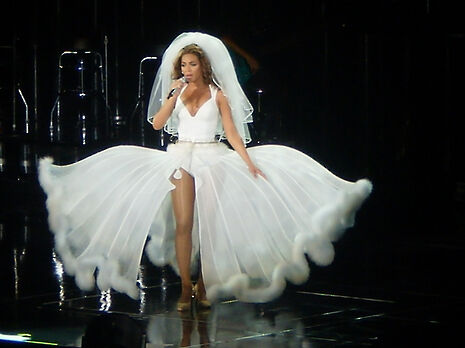Album: Beyoncé – Lemonade
“Beyoncé’s visual album is a masterclass in creative excellence”

When Beyoncé released Lemonade – a visual album – on HBO last Saturday, the internet worked itself into a frenzy over allusions to infidelity, marital disharmony, and the mention of "Becky with the good hair". What this myriad of gossip has done, however, is detract from what is arguably one of the most compelling albums of the decade.
Musically, visually and conceptually, Lemonade is sublime. Billed by Tidal as “a conceptual project based on every woman’s journey of self-knowledge and healing”, Beyoncé takes us through an eclectic song cycle of emotional turbulence. The album defies genre: the soft vulnerability of the opening ‘Pray You Catch Me’, evolves into the lyrically biting, reggae groove of ‘Hold Up’, but later leads into dabblings with country blues in ‘Daddy Lessons’ and the simple melodic ballad of ‘Sandcastles’. Any attempt to pigeonhole this album would be futile; indeed, in a project which explores transcending the boundaries of preconceived expectations, we must suppose that was the intention.
Artistic collaborations abound, with Jack White, James Blake, Kendrick Lamar and The Weeknd making musical appearances. There are also more subtle snatches of influence – Andy Williams, Soulja Boy, even Led Zeppelin. The most resonating inclusion is that of spoken word poet, Warsan Shire: unapologetic and profound, her words permeate the album, as an exploration of black female identity and sexuality.
Female empowerment takes many forms in Lemonade, from the "middle fingers up" of ‘Sorry’, with Serena Williams glaring defiantly at the camera, to the more mystical exploration of women as alchemists and healers. Beyoncé dissects the genealogy of female experience. Generational parallels spiral and collide: daughters learn how to wear lipstick, like their mothers wear disappointment on their faces; video footage of a young Beyoncé with her father is juxtaposed with that of Beyoncé’s daughter, Blue Ivy, with her grandfather and Jay Z. Notions of the cyclical nature of personal histories resound but, regardless of whether the focus is on Jay Z’s infidelity or her father’s, the point is, it stops with her - "There is a curse that will be broken" she declares. There is a sense of determined supplication for her daughter to not experience what she – and others – have; the mothers of Trayvon Martin, Michael Brown and Eric Garner holding photographs of their dead sons and staring directly into the camera, is a poignant moment of reflection on the significance of maternal protection. Malcolm X’s 1962 comment that the most disrespected, unprotected and neglected person in America is the black woman receives a new level of resonance. But the black women who suffuse every aspect of this album are not invisible – they are glorified.
‘Freedom’ is this rousing anthem of affirmation. Standing alone on a wooden stage, surrounded by an audience of women, and performing acapella, Beyoncé showcases the raw and transcendent power of her voice; she no longer retreats in a hood obscuring her face (‘Pray You Catch Me’), or revels in bitterness and resentment (‘Don’t Hurt Yourself‘) – in ‘Freedom’, she exudes defiance, strength, resilience and poise. The result is all the more powerful for the contrast: she emerges, as if from the depths of despair, in just the cathartic release we need. This song, in The Formation World Tour, sees her on her knees in a pool of water on the stage; it is symbolic of baptismal rebirth, of regeneration not just reconciliation ̶ “We’re gonna heal, we’re gonna start again”.
This is a breathtaking journey of Beyoncé defining her artistry; it appears to be what Kanye West and Rihanna were attempting with their recent albums, but didn’t quite pull off. Beyoncé’s visual album is a masterclass in creative excellence. We get a glimpse of home video footage of Jay Z’s grandmother, Hattie, who proudly says, “I had my ups and downs, but I always found the inner strength to pull myself up. I was served lemons, but I made lemonade”. Beyoncé has done just this: the result is bittersweet, but undeniably refreshing.
 News / Colleges charge different rents for the same Castle Street accommodation2 March 2026
News / Colleges charge different rents for the same Castle Street accommodation2 March 2026 News / News in Brief: waterworks, wine woes, and workplace wins 1 March 2026
News / News in Brief: waterworks, wine woes, and workplace wins 1 March 2026 News / Climate activists protest for ‘ethical careers policy’1 March 2026
News / Climate activists protest for ‘ethical careers policy’1 March 2026 News / Angela Merkel among Cambridge honorary degree nominees27 February 2026
News / Angela Merkel among Cambridge honorary degree nominees27 February 2026 News / Private school teacher who lied about Cambridge degree barred from teaching27 February 2026
News / Private school teacher who lied about Cambridge degree barred from teaching27 February 2026








